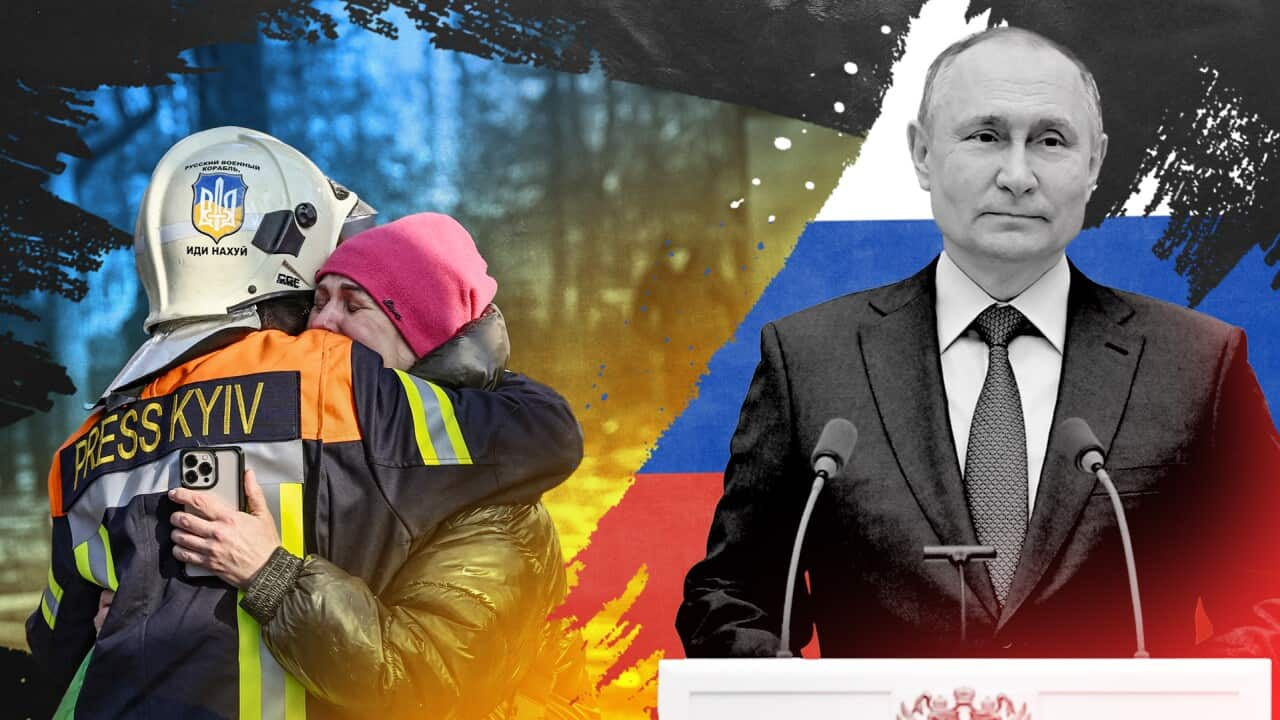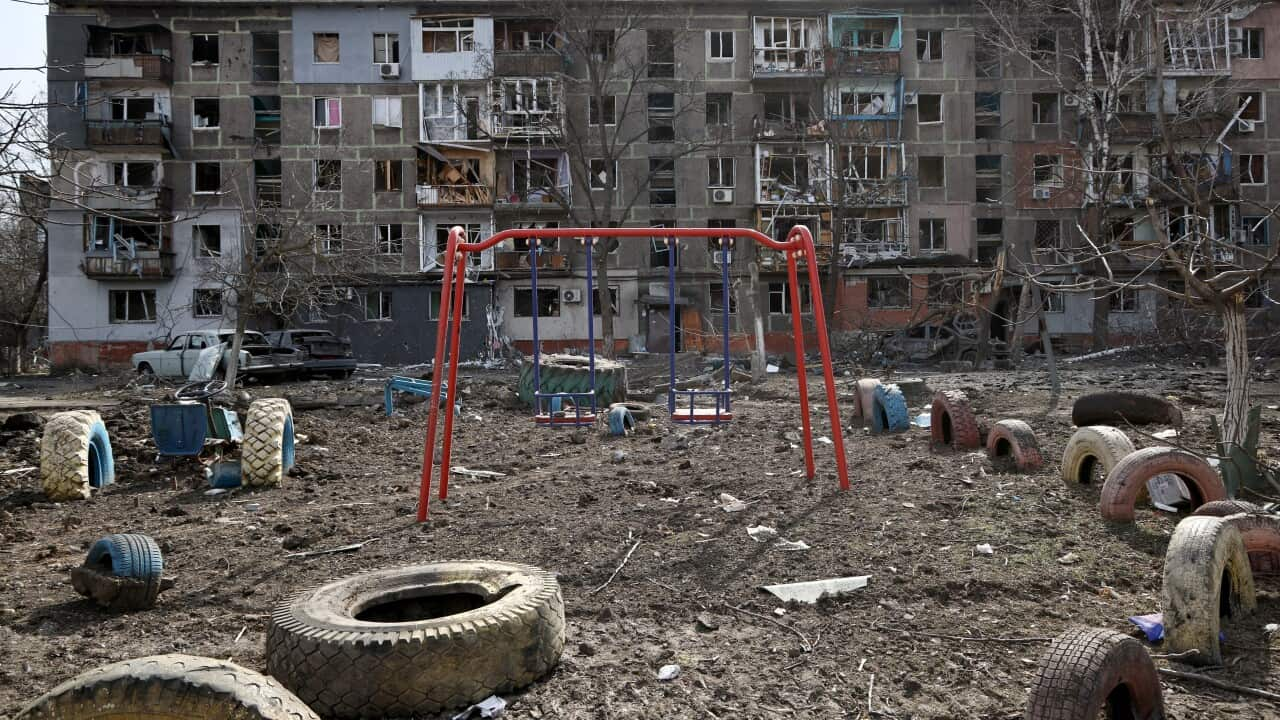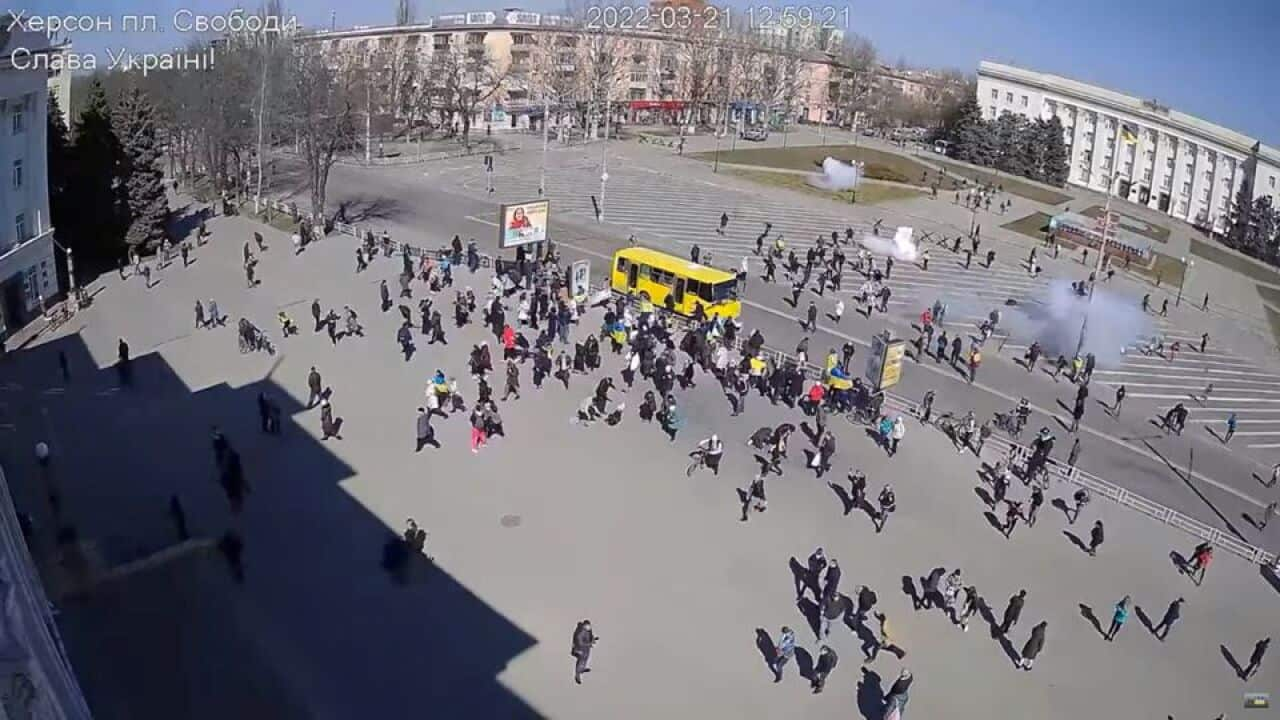Russian President Vladimir Putin has received heightened criticism from international figures over the past week over his orders to proceed with the invasion of Ukraine.
Foreign Minister Marise Payne hit out against Mr Putin on Sunday, saying that he "must be held to account" for what she said was the targeting of innocent civilians and infrastructure, describing them as "war crimes".
On Thursday, the US said it had assessed that Russian forces had committed war crimes in Ukraine.
US Secretary of State Antony Blinken said there had been "numerous credible reports of indiscriminate attacks and attacks deliberately targeting civilians, as well as other atrocities" by Russia's forces in Ukraine, specifying attacks in the besieged city of Mariupol.
, describing his comments as "unacceptable and unforgivable rhetoric".
"We believe such rhetoric to be unacceptable and unforgivable on the part of the head of a state, whose bombs have killed hundreds of thousands of people around the world," spokesperson Dmitry Peskov said, according to Russian-owned news agencies, TASS and Ria Novosti.
Russia said its rationale for the invasion was to fight for "a peaceful life for the citizens of Donbass, for the denazification and demilitarisation of Ukraine", with Mr Putin adding it would mean the country wouldn't be "threatened by an anti-Russia right on our borders that the West has been creating for years".
So, is this term simply political spin constructed by leaders around the world, or can Mr Putin be accurately described as a war criminal - and, if so, what are the consequences?
What does 'war criminal' mean?
To be described as a war criminal, a person must have first committed a war crime.
According to the Statute of the International Criminal Court (ICC), which sits in the Hague, Netherlands, a war crime is defined as "serious violations of the laws and customs applicable in international armed conflict".
A wide range of war crimes exist, but the most commonly known are the indiscriminate targeting of civilians and the launching of attacks that would cause excessive civilian casualties, Challis chair of international law at the University of Sydney Ben Saul explained.
"The law of war does not prohibit any killing of civilians, but if you are targeting a military objective, it's unlawful to cause disproportionate or excessive civilian casualties," he told SBS News.

Russian President Vladimir Putin waves during a concert marking the eighth anniversary of Russia's annexation of Crimea at the Luzhniki stadium in Moscow. Source: AFP / Ramil Sitdikov / Getty Images
"[Mr Putin] is absolutely a war criminal, regardless of the political circumstances," she said.
"Putin has still waged an aggressive war against Ukraine, and the actions of the Russian military within Ukraine, many of them amount to war crimes, and as the leader of the country of Russia, Putin does have responsibility for that."
The issue of war crimes in international humanitarian law - the law of armed conflict - is also listed in the 1949 Geneva Conventions.
The Geneva Conventions lists similar war crimes as the Hague, particularly those that involve the intentional directing of attacks against civilian targets and launching attacks on areas that are not military objectives.
All member states of the UN have signed and ratified the Geneva Conventions, including Russia.
Importantly, Russia is also a party to the first additional protocol of the Geneva Conventions, drafted in 1977, which details the need for the protection of the civilian population.
Despite being an additional protocol, it can stand as an independent treaty that aims to strengthen the importance of civilian protection during conflict, Dr O'Brien said.
"It is one of the most important treaties in terms of thinking about the war crimes that [Russia's armed forces] are committing, things like attacking civilians, attacking civilian objects, like residential buildings, so he is well aware of the obligations," she said.
Is Putin being investigated?
The ICC has already started investigations into alleged war crimes committed by Russia after 39 countries provided referrals to the Hague, including Australia.
In addition, six countries in Europe have launched their own separate criminal cases into Russia's invasion of Ukraine.
These war crime allegations surround the targeting of civilian sites such as kindergartens, hospitals, residential blocks and homes that have led to the deaths of hundreds of innocent people.
But Igor Konashenkov, chief spokesman for the Russian Ministry of Defence, has previously said that "Ukrainian nationalists continue to use residential areas and social facilities as 'human shields' in order to deploy their artillery systems and conduct massive fire on Russian servicemen".
"They (the Russian armed forces) carry out precision strikes against military infrastructure and never against civilian objects," he said.
The ICC prosecutor Karim Khan said evidence is being collected on the ground while the crisis continues to unfold.
Professor Saul said that it is difficult to gather evidence of war crimes on the battlefield "because of the insecurity and the risk to investigators that that involves".
But he said there are enough sources available for investigators to gather, including the testimonies of Russian prisoners of war that Ukraine has captured, which should allow for "prospects for prosecution at a number of levels".
Could Vladimir Putin be found guilty?
Experts say it would be an enormous challenge that could take years, but "it's not impossible".
Professor of international law and security at UNSW Canberra, Douglas Guilfoyle, said calling Mr Putin a war criminal is "accurate in a broad sense".
But, legally, he needs to be directly linked to the deaths of civilians for him to be a "war criminal".
"When we try to connect leaders to a war crime, we need a form of responsibility ... that connects the leader to the crime," he said.
"It's more difficult to link the senior military commanders and the senior civilian commanders right up to Putin, because then you've got to not only learn who did what on the battlefield, but who ordered them to do that," Professor Saul said.
Mr Putin would have to be physically detained in order to stand trial for war crimes against Ukraine - a mammoth challenge.
Without the Russian leader surrendering himself to The Hague, there could be no formal trial or potential conviction.
Former presidents faced war crime allegations
Professor Guilfoyle said: "The great majority of dictators who commit serious international crimes go unpunished. It's an imperfect system.
"The International Criminal Court has seen a number of case collapses but international criminal justice is a long game in which you can never say never."
Mr Putin would not be the first, nor the last, president to stand trial for allegations of war crimes.
Most recently, former President of Liberia Charles Taylor was convicted by the Special Court for Sierra Leone for war crimes in 2012 during the Sierra Leone war and was sentenced to 50 years in prison.
He is serving his sentence in a prison in England.
Former Yugoslav President Slobodan Milošević stood trial in The Hague for war crimes of genocide during the 1995 Srebrenica massacre. His trial started in 2002 and ended with his death in 2006.
Professor Saul said there is a "good precedent for bringing to justice senior war criminals" when remembering the conviction of 166 Nazi officials after World War Two at the International Military Tribunal in Nuremberg, Germany.
But Professor Guilfoyle said it is too early to tell what will come of Mr Putin as the war wages on and he remains in power.
ICC 'isn't the complete answer'
While the ICC is one of the world's most prominent judicial institutions, Dr O'Brien said it "isn't the complete answer" because it is known as the "court of last resort".
Due to its limited resources, the ICC only has the jurisdiction to prosecute a select number of war crimes, unlike in domestic courts, where individual countries' legislation can cover more comprehensive humanitarian law.
"We need to look at those national court options, including Ukraine and other domestic courts, where they are able to do that to ensure that there is a more comprehensive justice and accountability for all of the war crimes being committed in Ukraine," she said.
With AFP.













